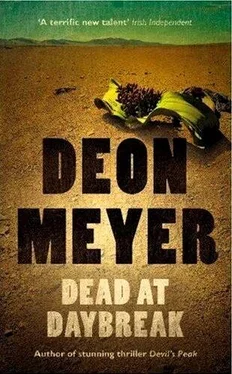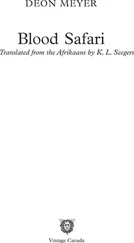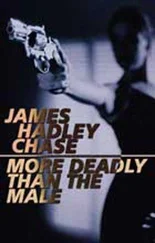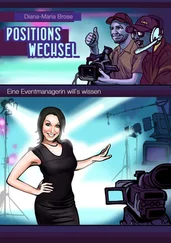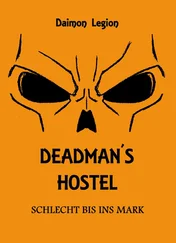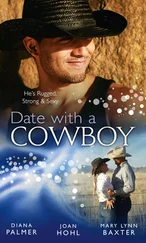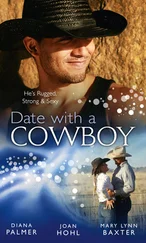“I knew the combination.”
He waited.
“Jan changed it. To my birth date. After he had shown me the will.”
“He kept all his important documents in the safe?”
“I don’t know what else was in it. Because it’s all gone now.”
“May I see it? The safe?”
She nodded and stood up. Wordlessly he followed her down the passage. Hope Beneke followed them. Between the bathroom and the main bedroom, on the right-hand side, was the safe’s big steel door, the mechanism of the combination lock set in it. The door was open. Van As touched a switch on the wall, and a fluorescent light flickered and then glowed brightly. She walked in and stood in the safe.
“I think he added it. After he bought the house.”
“You think so?”
“He never mentioned it.”
“And you never asked?”
She shook her head. He looked at the inside of the safe. It was entirely lined with wooden shelves, all of them empty.
“You have no idea what was inside?”
She shook her head again, small beside him in the narrow confines of the safe.
“You never walked past when he was busy inside?”
“He closed the door.”
“And the secrecy never bothered you?”
She looked at him, almost childishly. “You didn’t know him, Mr. van Rensburg.”
“Van Heerden.”
“I’m sorry.” He could see the woman blushing. “I’m usually good with names.”
He nodded.
“Jan Smit was…he was a very private person.”
“Did you clean in here after the…”
“Yes. When the police had finished.”
He turned and walked out, past Hope Beneke, who was standing in the doorway, back to the living room. The women followed him. They sat down again.
“You were the first to arrive on the scene?”
The attorney lifted her hands. “Could we have a bit of breathing space?”
Van As nodded. Van Heerden said nothing.
“I would love some tea,” Beneke said. “If it’s not too much trouble.” She gave the other woman a warm, sympathetic smile.
“With pleasure,” said Wilna van As, and she walked to the kitchen.
“A touch of compassion wouldn’t hurt, Mr. van Heerden.”
“Just call me Van Heerden.”
She looked at him.
He leaned back in the chair. The pain around his eye was surpassing the ache of his ribs. The hangover throbbed dully in his head. “Seven days doesn’t leave me much time for compassion, Hope.” He could see that his use of her name irritated her. It pleased him.
“I don’t think it will take either time or trouble.”
He shrugged.
“You make it sound as if she’s a suspect.”
He was quiet for a moment. Then he said slowly, tiredly: “How long have you been an attorney?”
“Almost four years.”
“How many murder cases have you handled during this period?”
“I fail to see what that has to do with you and your lack of basic decency.”
“Why do you think Kemp recommended me? Because I’m such a lovable guy?”
“What?”
He ignored her. “I know what I’m doing, Beneke. I know what I’m doing.”
∨ Dead at Daybreak ∧
4
For years the painting of my father hung on the wall facing their double bed – the lithe miner with his coppery blond hair and muscled torso set against a ridge in the Western Transvaal, bleached by winter. The painting was a symbol of their unique meeting, their unusual romance, the love at first sight that evidently happened more often in those days than it does now.
I don’t offer Emile and Joan’s meeting as an amusing prologue, but as one of the great factors that shaped my life.
In the shadow of their romance, I would spend most of my life searching for that moment in which I, too, would discover the same immediate and dramatic certainty of love.
It would, eventually, lead to my downfall.
♦
My father was a man of integrity. (How disappointed he would have been, had he known his son as an adult.) That – and his body – possibly formed the foundation on which my parents’ marriage was built, because they had nothing in common. Even after their marriage, three years later, they lived in separate worlds in the mine house in Stilfontein.
I must admit that I don’t recall much of the first four or five years of my life, but I did know that my mother, the artist, was always surrounded by her artistic friends: painters, sculptors, actors, and musicians, odd people who came on visits from Johannesburg and Pretoria, occasionally filling the third bedroom to overflowing, even bedding down in the living room on some weekends. She guided the conversation, a cigarette in her hand, an open book within reach, music coming from scratchy records, especially Schubert, but Beethoven and Haydn as well. (Mozart, she said, didn’t have enough passion.) She didn’t like housekeeping or cooking, but there was always a meal for my father, often an exotic dish prepared by one of her friends. And he was a figure on the periphery, the man who came off shift with his hard hat and his tin lunch box and went to rugby practice. Or went jogging in summer. He was a fitness fanatic years before it became fashionable. He ran the Comrades Ultramarathon year after year, other forgotten marathons as well. He was a quiet man, and his life revolved around his love for her and his love for sport – and, later, his love for me.
Into this household fate shoved me on January 27, 1960, a boy with his mother’s dark features and, evidently, his father’s silences.
It was his suggestion that they should name me Zatopek.
He was a great admirer of the Czech athlete Emil Zatopek, and the fact that he shared his first name with him, even if the spelling differed slightly, probably also played a role. For my mother, “Zatopek” was different, exotic, bohemian. Neither of them, with their ordinary names, could have foreseen what this would do to a boy growing up in a mining town. Not that the children’s insensitive teasing left a scar. But neither did they foresee the lifelong irritation of spelling your first name every time a form had to be filled in, the raised eyebrows and the inevitable “Come again?” every time you introduced yourself.
There were only two events during my first six years that would remain with me forever.
The first was the discovery of the beauty of women.
The applicability of this is multifaceted and you must bear with me, forgive me if I digress from narrative and chronology. But it was a subject that would fascinate me, enchant me, and eventually add to the jigsaw of my psyche.
The specifics of the event have been forgotten. I think I was five, probably playing with my toys in the living room of the mine house, among the adults, my mother’s wide circle of artistic friends, when I looked up at one of her friends, an actress. And in that moment recognized her beauty, undefined, but with the complete knowledge that she was beautiful, that one was swept away by the sum total of her features. I must admit that I can’t recall her face, just the fact that she was small and slender and possibly had brown hair. But it was the first of many such experiences, each one a milestone of growing admiration and meditation on the beauty of women.
The danger, of course, was the possible loss of objectivity. Because all men, after all, admire beautiful women. But I believed that my feeling for beauty, the way in which it impressed me, was above the average. Perhaps, I thought then, when I still had the energy and the hunger for reflection, that it was the only inheritance from my mother’s artistic genes – to be enchanted by the shape, the angles, the separate particles that make up the sum total of a woman, as my father’s body had enchanted her. The difference was that she wanted to paint it, as she did so many other people’s faces and postures. I was always content merely to look and to ponder. To wonder about the unfairness of the gods who conferred beauty in a haphazard fashion; about the devils of old age who could take back the beauty so that only the personality that had been shaped by it remained; about the influence of stunning beauty on a woman’s character; about the strangeness of beauty, its many wonderful facets of nose and mouth and chin, cheekbone and eye. And I wondered about the gods’ sense of humor, their wickedness and meanness in giving some woman a perfect body and then holding back at the very epicenter of beauty, the face. Or connecting an exquisite face to a hideous body. Or adding a fraction of imperfection to the mix so that it hangs there in no-man’s-land.
Читать дальше
